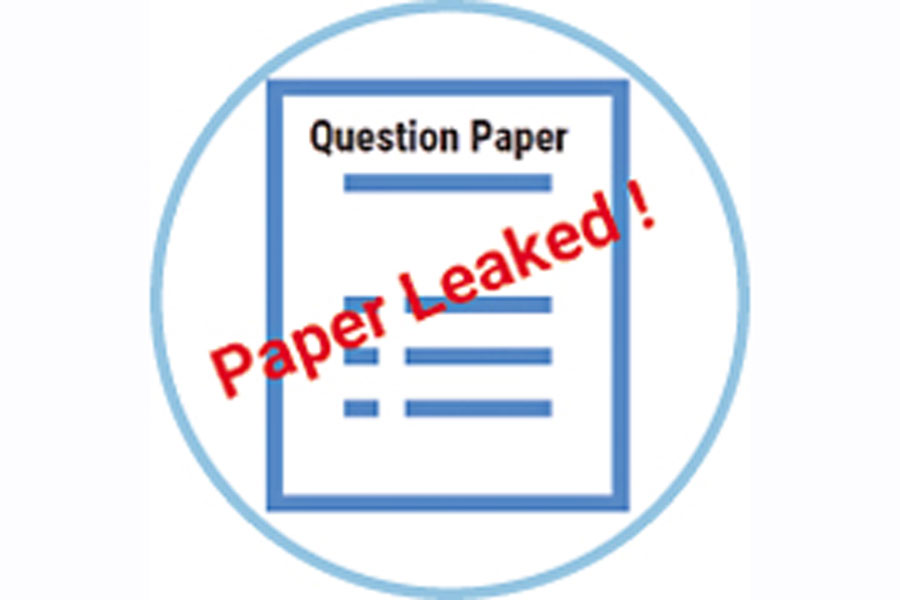
Published :
Updated :

The arrest of 17 people including six officials of the Public Service Commission (PSC) has exposed not only the magnitude of the problem but also a deeper rot set in the administrative, social and moral systems. It seems that the government has at last made it a point to nab the corrupt elements in the administrative system. Whether it will prove too little too late only time will tell but it can be considered a good primary step towards cleaning the Augean stables. It is, however, quite baffling that the corrupt elements were tolerated so long while they enjoyed hey days in abusing power and positions in order to gain ill-gotten wealth of astounding proportions.
Now the only way to have some solace is from the old cliche, 'better late than never'. The unearthing of one after another mind-boggling case of fraudulence, malpractice, misuse of public fund and bribery, albeit unnerving, at least shows that the criminals are not going scot-free ultimately. In the case of question leaks of recruitment test of the Bangladesh Railway, 14 accused are on the run apart from those arrested. Earlier, two high-profile corrupt men ---one a former chief of the police and another two officials of the National Board of Revenue (NBR)--- were found to have amassed huge wealth by corrupt means. The Anti-corruption Commission (ACC) has filed cases against more such former and incumbent officials and members of their families and relatives on charges of acquiring wealth many times more than their legal and known income would have permitted.
Those who are on the run may not be brought to justice because they had laundered money abroad before to secure their footing on foreign soils. Even some of the culprits in service, against whom cases have been filed have simply been transferred to other departments or ministries. It cannot be enough punishment. Motiur Rahman's and some corrupt NBR and other officials' whereabouts are unknown. Most likely they have left the country and are unlikely to appear before the court to defend themselves. But their trial was most essential in order to prove that corruption is not rewarded at all, rather it is highly costly for those involved.
Acquisition of wealth by illegal means may be just the ultimate goal for some but not all are soaked into the vortex of underhand deals. In case of the PSC question leak scam, reportedly transactions of Tk 250 million in the bank accounts of the syndicate of the constitutional body were made over the past three months. The Criminal Investigation Department (CID) which is probing into the scandal suspects that another 50-60 more people are involved in the question leak. What is highly concerning is that the syndicate has allegedly been involved in similar question leaks of government recruitment tests and even the Civil Service examinations for over the past two decades. Strangely, the PSC failed to file criminal cases against those found guilty of question leak earlier.
Money is indeed a factor here, only more so for the corrupt syndicate but beyond that the implications are graver---disastrous indeed. When positions that only the talented and qualified candidates were supposed to grace, underqualified and unqualified people could purchase those with fat amount of money. Their recruitment to the positions in exchange for money ranging from Tk 1.0 million to Tk2.0 million or even more, initiated them to the corrupt practice. They had not only wanted to get back the money they spent for recruitment but also got intoxicated with amassing wealth right and left. Without such an obsession for making illegal money, how can one purchase acres of lands, flats and all other moveable and immoveable property as are dug out by the media and the ACC?
This is, however, only one downside of the matter. What happens in the process is that the whole system turns corrupt and the public servants turn into lords of the land. The people who were supposed to get the service fairly and without any hassle are deprived of their rights to it. Even the most unwilling and unyielding officers and service-seekers are made to compromise on ethical issues. The regime becomes not only corrupt but also unrelenting in serving those who can appease the syndicates' hunger for money. Thus bribery has become rampant and the authorities tolerant to such aberrations.
The demoralising impacts vitiate society and gradually undercut people known for honesty and integrity. On the economic front including commerce and business, the impact proves devastating. This is what the country is witnessing right now. Privileged and better educated people become crafty and intriguing in order to maximise their gains at the cost of common people. The latter become a pawn at the hands of the devious and the duplicitous. Society is riven by yawning disparities and inequalities. Some become filthy rich because they are cunning and can opt for illegal and immoral practices while the underprivileged and the marginal are pushed to the fringe, leaving no scope for them to break the vicious cycle of poverty. Bangladesh may achieve higher statuses in terms of economic indicators but the maldistribution of wealth has already proved a fabrication of socio-cultural progress and an inclusive society.
nilratanhalder2000@yahoo.com


 For all latest news, follow The Financial Express Google News channel.
For all latest news, follow The Financial Express Google News channel.